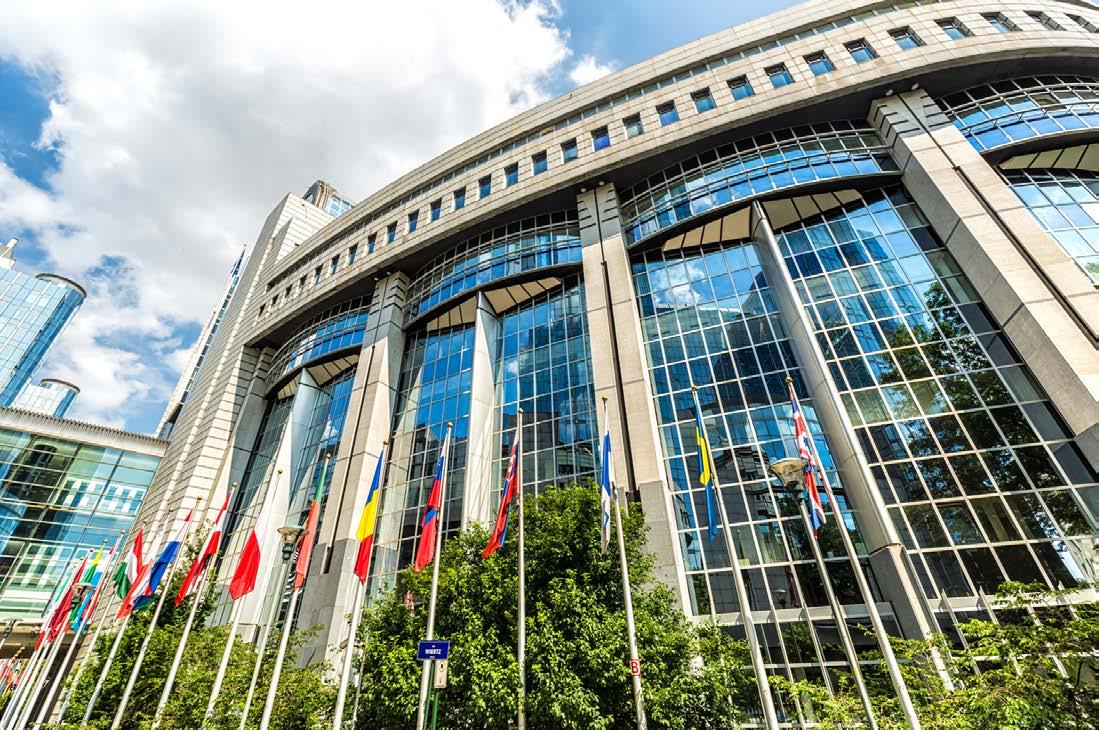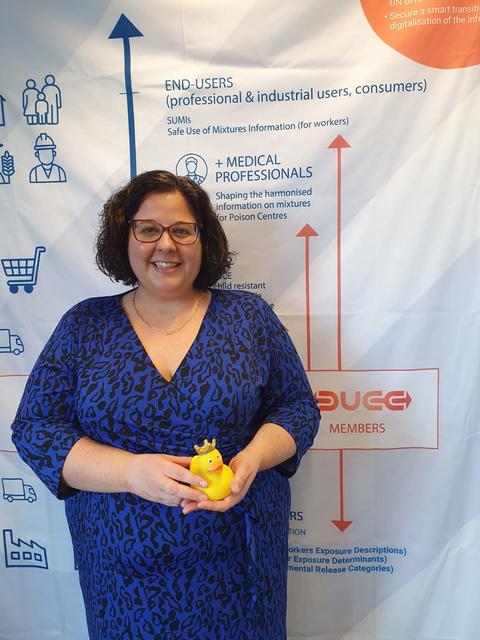
2 minute read
FEICA position on the Packaging and Packaging Waste Regulation
by FEICA
The adhesives and sealants (A&S) industry in EuropesupportstherevisionofthePackaging and Packaging Waste Regulation (PPWR). FEICA supports updating the legislation to speed up the transition to a circular EU economyandaclimate-neutralEurope.
Ifadhesivesaregoingtocontinuetohelp promote the goals of circularity and sustainability and to avoid market disruptions or unfortunate substitutions, some aspects need to be taken into account. You can read the FEICA position on the PPWR on the FEICA website: www.feica.eu/our-projects/food-contact
Advertisement

On 30 November 2022 the Commission published the Proposal for a Regulation on packaging and packaging waste which is now going through the codecisionprocedure: www.environment.ec.europa.eu/publicat ions/proposal-packaging-andpackaging-waste_en
A strong regulation would harmonise packaging recycling requirements throughout Europe, lessen market barriers, and simplify the compliance work of economicoperators.

Adhesives have for many years had a successful part in circular value chains such as in plastic, glass, metal , paper and multilayerpackaging.
The adhesives industry together with stakeholders along the value chain continuously evaluates and improves the compatibility of adhesives with the recycling ofpackagingwaste.
FEICA fully supports the objective of the newregulationregardingpackagingand packaging waste and is actively engagedintothelegislativeprocess.
FEICA proposal regarding the extension of the Generic Approach to Risk Management (GRA) in the European Commission’s Chemicals Strategy for Sustainability (CSS)
On 14 October 2020, the European Commission published its Chemicals Strategy for Sustainability (CSS), which is partoftheEuropeanUnion’szeropollution ambitions outlined in the European Green Deal.TheCSSisamajorinitiativewhichwill redefine the EU chemical policy, prioritise intervention and substitution, and move sharplytowardsgenericrestrictions.
The CSS contains 56 actions, most of them legislative changes, including a targeted revision of REACH. The extension of the GenericApproachtoRiskManagementto professional uses will have significant impactsonusersofadhesivesandsealants.
The European Commission would like to extend the scope of application of the Generic Approach to Risk Management (Art 68.2 of REACH). The scope would be extended from consumers to professional users, and from carcinogens, mutagens and reprotoxic chemicals (CMR) to other hazardclasses(someunderdiscussion).
The generic approach to risk management, also called the hazard-based approach, targets chemicals for regulatory action based on intrinsic hazard properties onlyregardlessofwhereandhowthechemicals willbeused,andregardlessofwhetherthere isanyactualriskpresent.
Under the generic approach to risk management, no risk assessment takes place,and,therefore,useconditionsandrisk managementmeasuresinplaceforensuring safeusearenotconsidered.
Thiscouldresultinprofessionalusers(suchas workers in the construction sector or repair shops) not being allowed to work with adhesives and sealants which contain substanceswithhazardousproperties.

Should the need for a specific regulatory risk management measure regarding professionalsbeidentified,thecurrentlegal frameworkalreadyprovidesanappropriate setoftools.

Professional workers perform tasks that are important for society and the circular economy, and they need chemical products to perform those tasks. The applicationofthegenericapproachwould adversely affect the availability of substances and products. Professional workers, such as construction workers or workers in repair shops, would end up having to work with products available to consumers, the technical functionalities providedbytherestrictedchemicalsbeing unavailable. The range of potentially affectedusesisincreasingenormously,and the extension to additional hazard classes exacerbatestheproblem.
FEICA members are committed to ensuring the highest level of protection for professionals and believe that there are waystosafeguardprofessionalworkersother than generic substance bans without a risk assessmenthavingbeenperformed.
It therefore aims to promote the developmentofaEuropeanplatformforthe informationandtrainingofprofessionalusers covering the risks arising from the most harmful chemicals. This initiative would be moreproportionatethanthegenericbanof substancesforprofessionals.
The FEICA proposal is available on the FEICAwebsitevia: www.feica.eu/our-projects/reach/GRA
@DUCC
Paula Diaz, Senior Regulatory Affairs Manager at FEICA, has been elected as Chair of DUCC, replacing Jan Robinson, Scientific and Regulatory Affairs Director at AISE.
DUCC is a co-founding member of two important ECHA multi-stakeholder initiatives on the topic of supply chain communication:theExchangeNetworkof Exposure Scenarios (ENES) and the Chemical Safety Report/Exposure Scenarios Roadmap (CSR/ES Roadmap). The group’s main objective today is to further the successful implementation of the requirements of the REACH and CLP Regulations. FEICA has actively contributedtoallsincetheirconception.
Please join us in congratulating Paula for thisposition,whichreflectsheroutstanding contributiontoDUCC
FEICA also thanks Jan Robinson for her leadershipastheDUCCchairsince2016.



